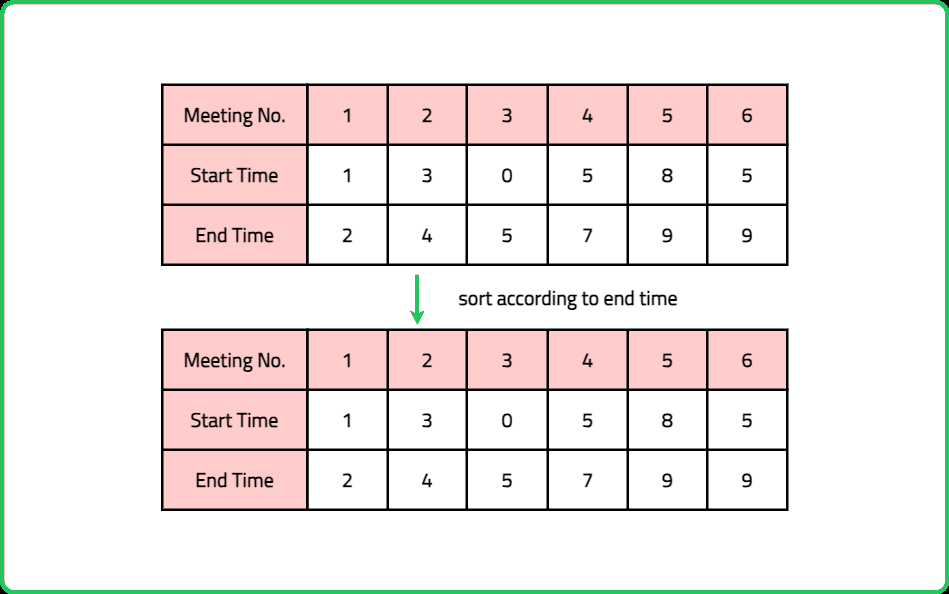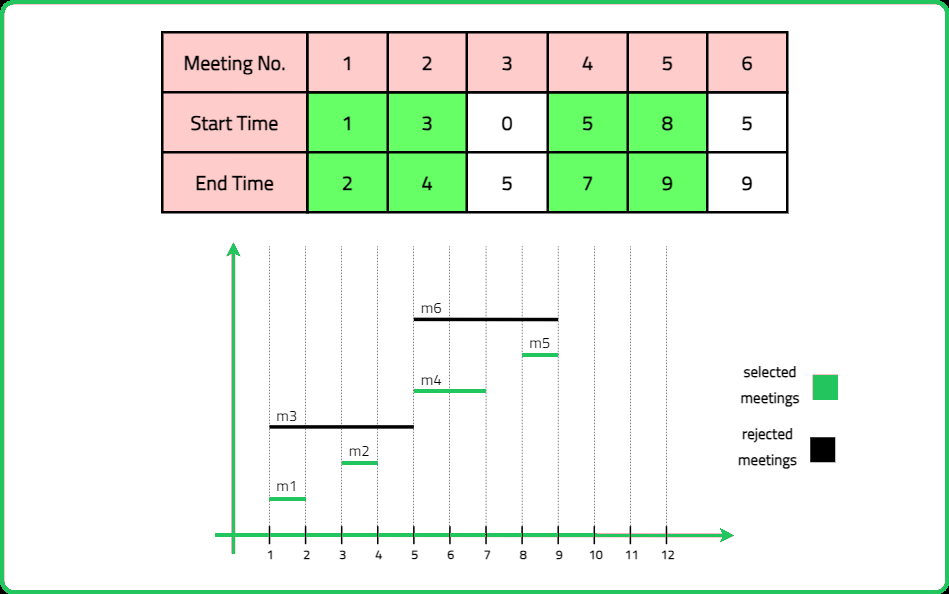N meetings in one room
Greedy Algorithms
Scheduling and Interval Problems
Medium
- Fun Fact: This problem, in its essence, is an instance of interval scheduling, which is a classic topic in optimization and used widely across real-world applications
- Calendar apps like Google Calendar and Outlook use this principle to optimize meeting schedules
- The algorithms behind ride-sharing apps like Uber and Lyft or food delivery services like Grubhub and DoorDash, which need to accommodate multiple delivery or pick-up requests within specific time windows, also leverage this concept
- In the realm of cloud computing, similar algorithms are used for optimizing usage of computing resources based on their start and end usage times
Given one meeting room and N meetings represented by two arrays, start and end, where start[i] represents the start time of the ith meeting and end[i] represents the end time of the ith meeting, determine the maximum number of meetings that can be accommodated in the meeting room if only one meeting can be held at a time.
Examples:
Input : Start = [1, 3, 0, 5, 8, 5] , End = [2, 4, 6, 7, 9, 9]
Output : 4
Explanation : The meetings that can be accommodated in meeting room are (1,2) , (3,4) , (5,7) , (8,9).
Input : Start = [10, 12, 20] , End = [20, 25, 30]
Output : 1
Explanation : Given the start and end time, only one meeting can be held in meeting room.
Input : Start = [1, 4, 6, 9] , End = [2, 5, 7, 12]
Constraints
- 1 <= N <= 105
- 0 <= start[i] < end[i] <= 105
Hints
- Sort the meetings by their end time in ascending order. If two meetings have the same end time, sort by their start time.
- Start with the earliest possible meeting. For each subsequent meeting, check if its start time is greater than or equal to the end time of the previously selected meeting.
Company Tags
IBM
Seagate Technology
Airbnb
Philips Healthcare
HCL Technologies
ARM
Flipkart
Epic Systems
Bain & Company
Mastercard
Swiggy
Optum
Roblox
Unity Technologies
JPMorgan Chase
Rakuten
KPMG
Siemens Healthineers
Epic Games
Oracle
Lyft
Zomato
Bungie
Zynga
McKinsey & Company
Google
Microsoft
Amazon
Meta
Apple
Netflix
Adobe

